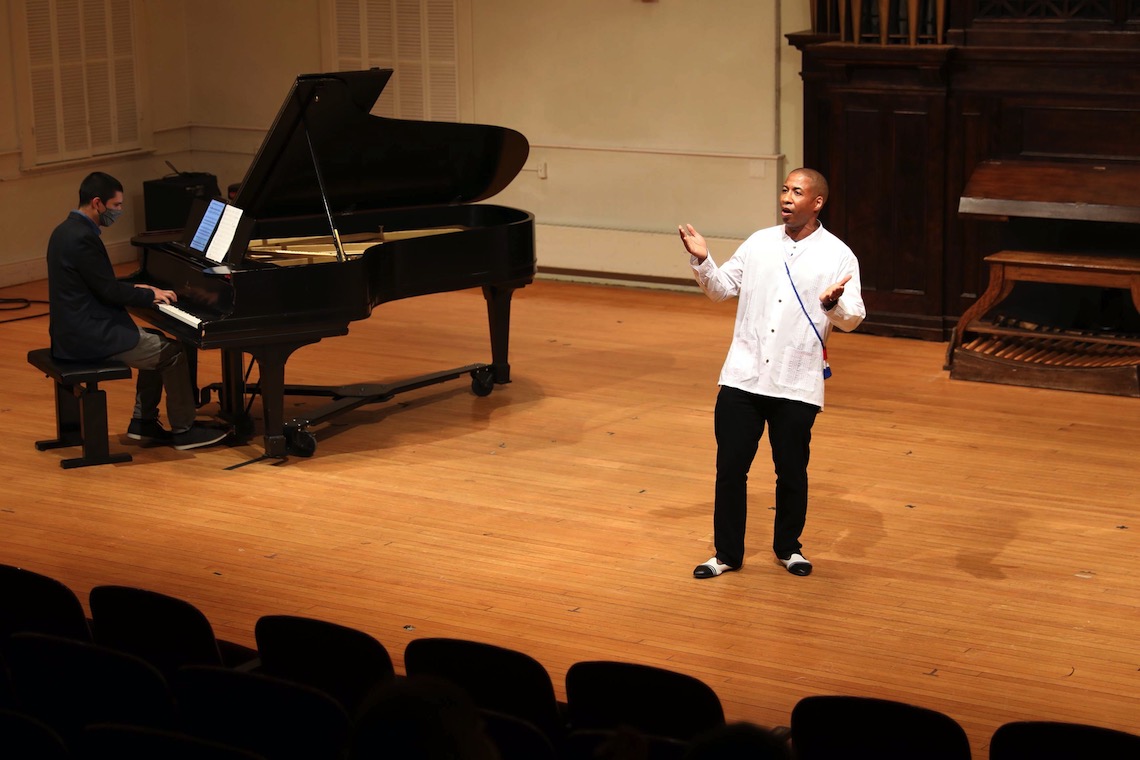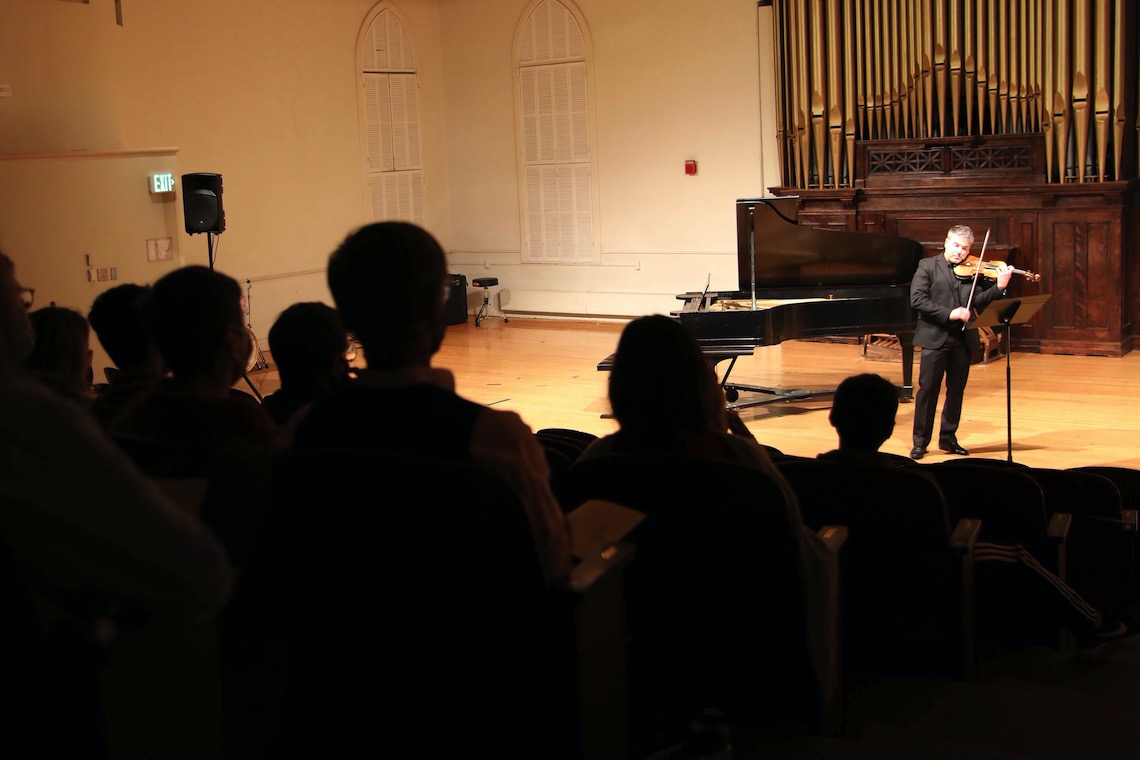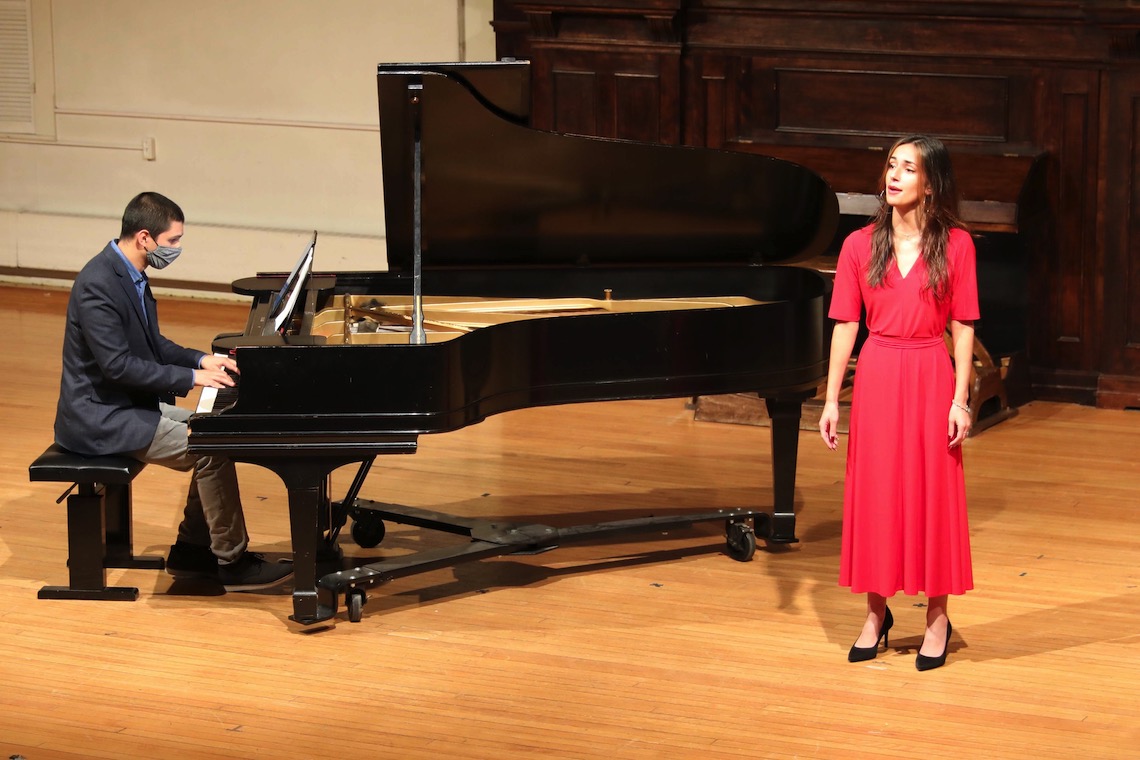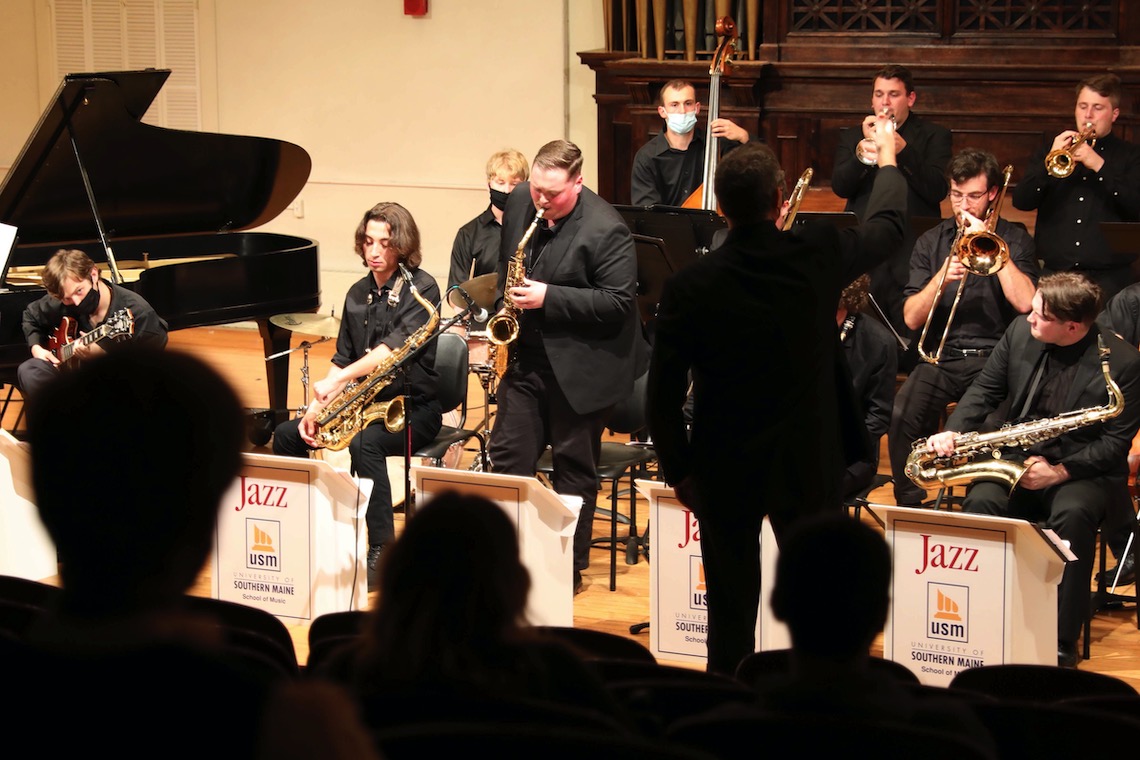Latinx pride took musical form in a concert celebrating Hispanic Heritage Month.
Osher School of Music faculty and students of Latinx heritage shared the stage Thursday night, Sept. 30, at Corthell Hall on the Gorham Campus. The program for Celebrating Diversity: Hispanic Heritage Month featured 10 pieces, each chosen by the performers as a personal expression of their cultural identity.

“This could be a start in the arts in celebrating diversity, and maybe you gain a glimpse at someone else’s culture and background,” said Dr. Nicolás Alberto Dosman, Director of Choral Studies.
Dosman came up with the idea of a concert series to introduce more people to styles of music beyond traditional western European. The showcase of Latinx music kicked off the series and will be followed next month by a concert focusing on the LGBTQIA+ experience. Future concerts will be devoted specifically to female and Black voices.
Leading by example, Dosman came “out of hiding,” as he put it, to sing publicly for the first time in several years. His roots in Panama were reflected in his rendition of “Historia de un Amor” by Panamanian songwriter Carlos Eleta Almarán.
The bolero-style song became a pop standard in recent decades, recorded in multiple languages around the world. For his version, Dosman said he wanted to strip away some of those layers and sing it in a “more authentic way.” And that commitment extended to every article of his clothing. His Panamanian formal wear, or Montuno, included black and white shoes called chinelas and, hanging at his left hip, a pouch called a chácara.

Also representing the faculty, Dr. Robert Lehmann, Director of String Studies and Orchestral Activities, paid tribute to his native Mexico with two violin pieces, and Alexandra Dietrich spoke between her songs about her family ties to Puerto Rico.
For her final number, Dietrich invited one of her students to join her in a duet. Caroline Woods, a third-year Classical Performance major, had the spotlight to herself for the first part of “I Have Love” from the musical “West Side Story,” with Dietrich adding her voice toward the end.
“I was really honored because I look up to her immensely,” Woods said. “To get to represent my heritage, even though I am Brazilian, it was so amazing to represent other cultures as well.”
Woods spent several years of her childhood in Brazil and much of her extended family still lives there. But she’s been cut off from them by travel restrictions due to the COVID-19 pandemic. Woods said she especially misses her grandmother, who she hasn’t seen in person for two years.

Even before the pandemic, being Latinx in Maine could sometimes feel very lonely, said Michelle Vazquez Jacobus, Associate Professor in Sociology. She delivered opening remarks at the concert with a blend of her professional insights and personal reflections on her Puerto Rican heritage.
“One thing Maine Latinas have in common, we are all ‘from away,’” she said.
She cited statistics showing that Maine has one of the smallest Latinx populations in the country behind only West Virginia. According to the 2020 U.S. Census, people identifying as Hispanic make up 2 percent of the Maine population compared to 18.7 percent nationwide. Records at the University of Southern Maine show 3.4 percent of degree-seeking students identify as Latinx.

Vazquez Jacobus admitted that moving to Auburn from Brooklyn, N.Y., was hard at first knowing that she stood out as different. That sense of otherness could be exacerbated when well-meaning people asked her to act as a representative of Latinx culture or speak about issues of diversity. She said she now sees those requests as aspirational rather than tokenism.
“I may not fit in,” Vazquez Jacobus said, “but I do belong.”
Hispanic Heritage Month runs from September 15 to October 15.

